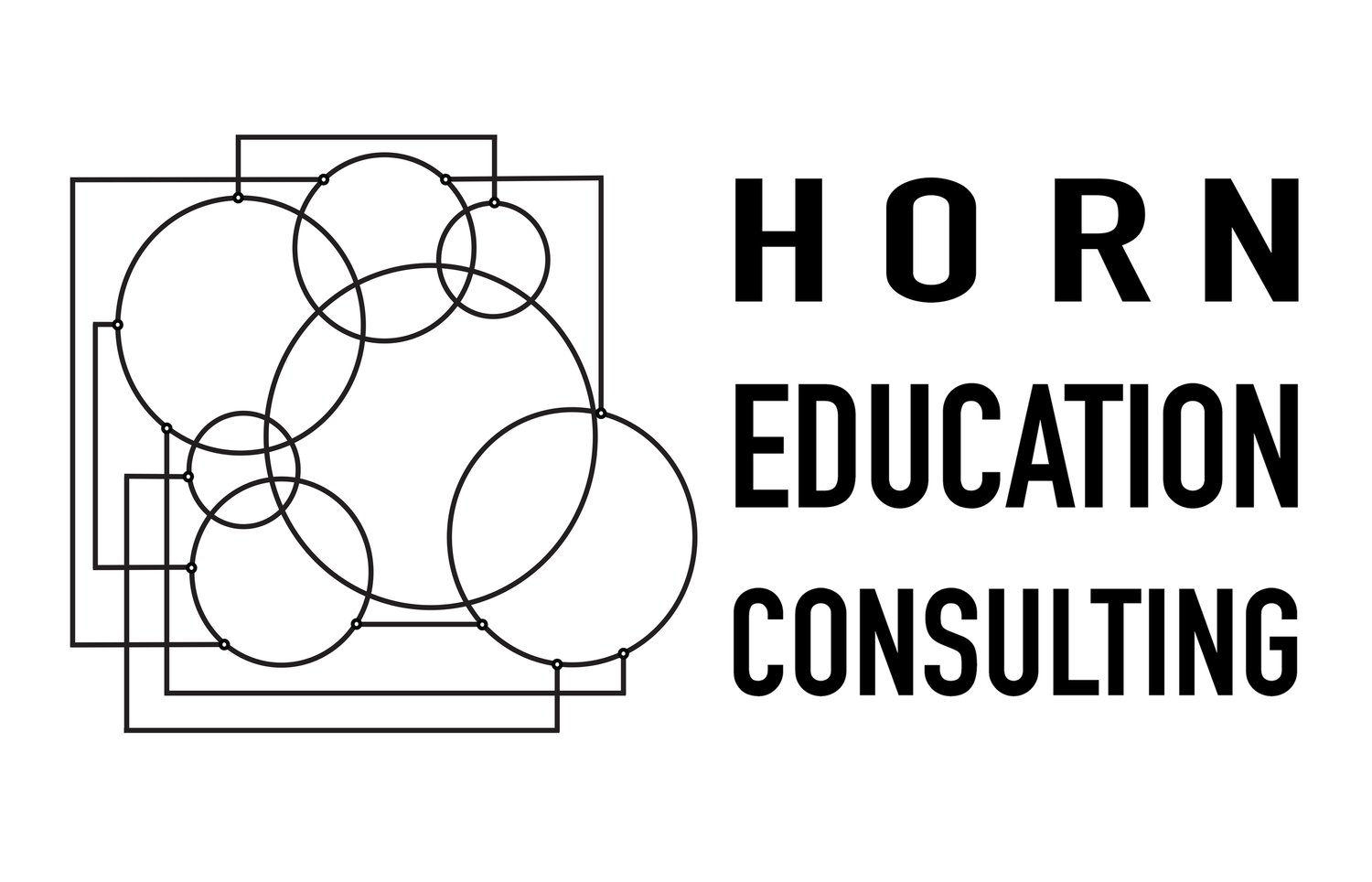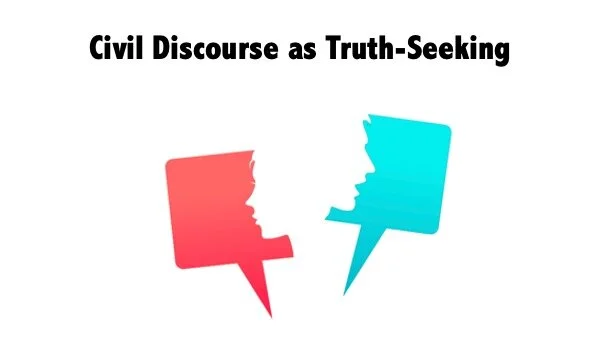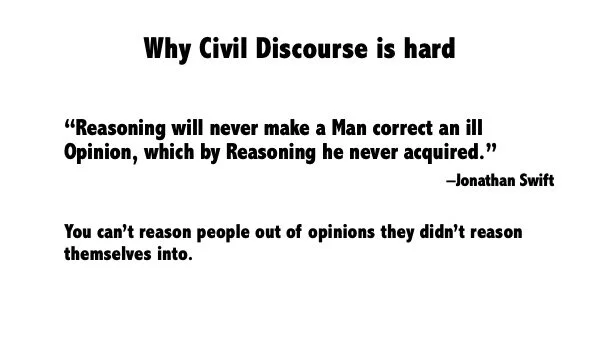Civil Discourse 101 with Peter Horn
This bonus episode is a departure from my usual format in several ways. First, I answer more questions than I ask. Second, I’m the guest. Third, I didn’t really make the show—or at least, not the way I usually do! The lion’s share of tape today comes courtesy of the Pingry Politics Podcast, hosted and edited by the Politics Club president at the Pingry School in NJ, Marcus Brotman. When I showed up (via Zoom) to lead a session on civil discourse sponsored by the club just a few days after the January 6th Insurrection at the Capitol, Marcus asked me if it was okay to record the show for the club’s own podcast. Well of course, he had me at “podcast”! After I listened to it, I thought he’d done such a nice job that I asked permission to share it here, which he kindly granted. Despite the unusual origin of this episode, it very much aligns with the project of my podcast: sharing the best ideas I know about what and how and why we learn. In this case, it’s on one of my favorite topics that I get to work on with faculty and students, one that schools so often overlook as they prepare young citizens: civil discourse, or how we practice talking respectfully with one another about topics of shared concern.
Select Slides from my Powerpoint presentation for the politics club
After some intro and explanation about the episode, the civil discourse session begins with a 17-minute overview of concepts I thought were important, based on students’ preliminary questions that Marcus shared with me as I was preparing for the session. The remainder of our time is spent in Q & A with the approximately 25 students who chose to attend this after-school event. There won’t be a YouTube companion for this bonus episode, so below are some of the slides and images I refer to throughout the overview and Q & A.
Civil discourse is a specialized kind of conversation, not the kind of thing you can engage in by turning to a stranger behind you in line at Panera. It’s not a debate, and it’s not about “winning.” It’s about seeking the truth on complex issues of shared concern.
This poster, designed by former Westfield (NJ) High School colleague and friend Roy Chambers, is an example of the kinds of ads we would regularly produce for Agora, a forum for open discussion for students and faculty at WHS.
The Greek root of “politics” means “city,” as in Indianapolis. The root of “idiot” is self-serving.
It’s important to remember there are some conversations you just won’t be able to have. There has to be a level of respect and trust—but also openness, and a willingness to risk changing one’s mind—from all parties wishing to engage in civil discourse.
One way to invite everyone in is to remind progressives and conservatives that all places along the political spectrum have value in thinking and making decisions about complex issues.
Jonathan Haidt quotes another social psychologist, Thomas Gilovich, who says, “For desired conclusions, we ask ourselves ‘Can I believe this?’ but for unpalatable conclusions, we ask, ‘Must I believe this?’” We’re wired this way, along with our individual biases, prejudices, and cognitive distortions. Sometimes attributed to Ayn Rand, the wisdom “We see the world as we are, not as it is” comes from the Talmud. (Image: Roy Chambers)
In the conversation highlighted in episode 027, “US+THEM,” Jonathan Haidt observed that we didn’t really evolve to be particularly adept at parsing logical arguments. It was a matter of survival, however, to become adept at staying a member our group or tribe.
Civil discourse requires that we agree on reliable sources of information, or at least that we agree on standards for critiquing sources of information.
Former Senator Daniel Patrick Moynihan (D-NY) famously opined, “Everyone is entitled to his own opinion, but not his own facts.” He died in 2003.
A little bit busy in the design, this infographic reminds readers of ideological bias in online reporting. Begun by a progressive and a conservative who believe we can get better at hard conversations, the website AllSides.com is a good starting point for researching controversial issues.
SUPPLEMENTARY MATERIALS
I mentioned the conversational harness known as Serial Testimony developed by Dr. Peggy McIntosh (featured in episode 021) and used by her colleagues at the National SEED Project (featured in episode 024). The notes that I condensed are available below.
SPECIAL THANKS
Thanks to the outstanding high school students at Pingry who welcomed me in January. The Pingry Politics Podcast is hosted and edited by Marcus Brotman, the co-host is Sean Lyons, with intro and outro music by Max Brotman. The advisor to the Pingry Politics Club is Dr. Zachary Wakefield. Thanks again to Tim Lear for connecting me with all of them. Shayfer James provided intro, outro, and supplemental music for today’s episode. Hear and buy his music at shayferjames.com.
Point of Learning is now a member of Patreon, so if you’re interested in helping me share important ideas about what and how and why we learn, punch the button below. Cool stuff happens for as little as 10 cents per day! My great thanks to those who have already joined. Patrons include: Aaron Bartley, Gilberto Belaval, Gretchen & David Brand, Patty Cruice, Ryan Daly, David Davis, James Duggan, Dave Eisenberg, Anna Falicov, Errick L. Greene, Jonathan Hiam, Gregory Horn, Janice & John & Ava & Brooke Horn, Robyn Lee Horn, Greg Jackson, Tim Lear, Janet & Robert Lee, Kristen Lee, Tom Loughlin, Linda B. Matt, J. W. Gregg Meister, Miriam Meister, Sarah & Peter Meister, Julia Olff, John Opera, Gail & Frank Richeson, Stacy Rodgers, Elizabeth & Terry Rowlands, and Keith Zemsky.
Never miss an episode! Subscribe to the newsletter and I’ll reach out whenever a new episode or bonus item is available. Takes less than 30 seconds to sign up.












